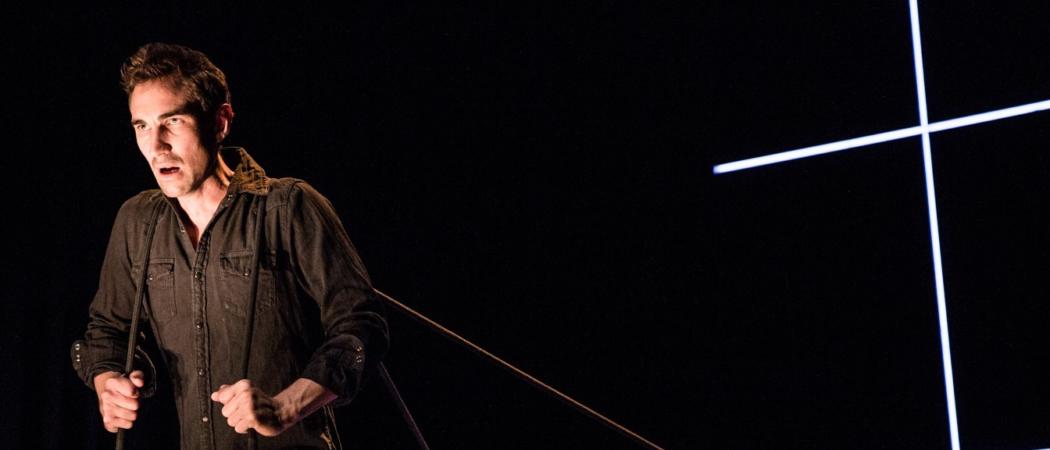In this superb production the animals at Manor Farm know something isn’t right: surely there’s more to life than hard work and a premature demise. Old Major the boar experiences an epiphany, calls together the non-human inhabitants, and explains the injustices inherent in the life of an animal bred solely for the purposes of serving a human master. The pigs plan and lead a glorious rebellion against farmer Jones, and drive him off; thereafter renaming the property Animal Farm. How will they govern themselves now that all animals are equal? The pigs step into the power vacuum and what follows is one of western literature’s most powerful tales about the mechanics of totalitarianism.
George Orwell’s Animal Farm was first published in 1945, and it became, along with the anti-totalitarian 1984, one of his most well known and cherished works of fiction. Orwell fought in the Spanish civil war and consequently had first hand experience with revolutions, power dynamics in war zones, and communist regimes. He fell in and out of favour with the communist forces in Spain (who were at times allied with the democrats against the fascists) throughout his time there, before he was shot by a sniper which nearly caused his death. He was a life long vociferous supporter of democratic socialism.
This winning adaptation provided by director Geordie Brookman very effectively transfers the full power of the text from the page to the stage. The production is simultaneously intimate and grand: actor Dale March comes close to relate details in quieter moments, and uses the full depth of the stage to depict the battle scenes and the political turmoil. The set (Design: Bianka Kennedy) has a perhaps futuristic feel, replete with neon lights, which for me commented on the timeless nature of the tale: we may be hearing about a particular farm, somewhere in the now distant past, but really we are hearing about an eternal present.
The lighting (Alexander Ramsay) was outstanding, effectively deploying lights from every angle to create a variety of engaging effects. March was lit from the front as the pigs gained power, throwing towering and terrifying shadows onto the walls of the theatre that conveyed the menace of the autocrat in full flight. In the beginning we were in darkness, and then in the darkness all we could see was a head (side lighting), and then a voice: Ramsay demonstrated a high level of finesse.
Dale March begins his compelling performance with tightly controlled characterisation: in this way he doesn’t give away the ending. As is often the case in the heat of political turmoil, it is not clear at first who is right and wrong, honest and mendacious. Performing a one man show is a remarkable feat: to do it while playing upwards of twenty characters is undoubtedly technically and artistically demanding. March makes it look effortless and natural; it’s easy to forget the enormous amount of text he’s memorised (he spoke continuously for nearly an hour and a half), in the style of the Homeric bards.
This production from State Theatre Company South Australia, in Sydney at Riverside Theatres Parramatta, is compelling from start to finish: it's a wonderful way to experience Orwell's classic fable.
Photo by James Hartley.
